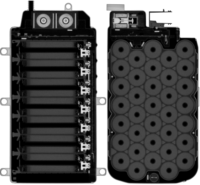U.S. vehicle-safety regulators may seek greater authority to
investigate defects in cars and trucks, and are weighing a range of new
safety requirements in response to Toyota’s recall of more than eight
million vehicles over brake and acceleration problems.
David
Strickland, head of the National Highway Traffic Safety Administration,
said his agency will take a “hard look” at the power it has to
set safety standards for automakers. Current authority, acquired in the
1960s and 1970s, may not be enough to oversee the technology used in
modern vehicles, he said.
But one lawmaker at a House hearing
said the agency’s problems seem to have more to do with “ineptitude”
and lack of money than with insufficient powers. Rep. John Dingell
(D-Mich.) said the agency’s response to the Toyota recalls had been
sluggish after “years of stagnation in funding.”
Strickland told
the panel it was unclear whether the agency can regulate “in a way that
allows the auto industry to build and sell safe products that the
consumer wants to drive.” The government may also require automakers to
include brake-override systems, a fix intended to prevent the type of
runaway car incidents that some Toyota drivers have described. It would ensure a driver stepping on the brakes can
slow the vehicle even if the gas pedal is stuck or malfunctioning.
Strickland
said the agency will consider mandating event data recorders, or
vehicle “black boxes,” which typically record data about whether the
brake or accelerator pedals were depressed at the time of a crash.
About 60% of vehicles already have the technology. He also vowed to
look closely at push-button start and stop technologies to ensure
drivers can easily turn their cars off during an emergency.
Feds May Seek More Authority on Vehicle Safety
Looking for a reprint of this article?
From high-res PDFs to custom plaques, order your copy today!




